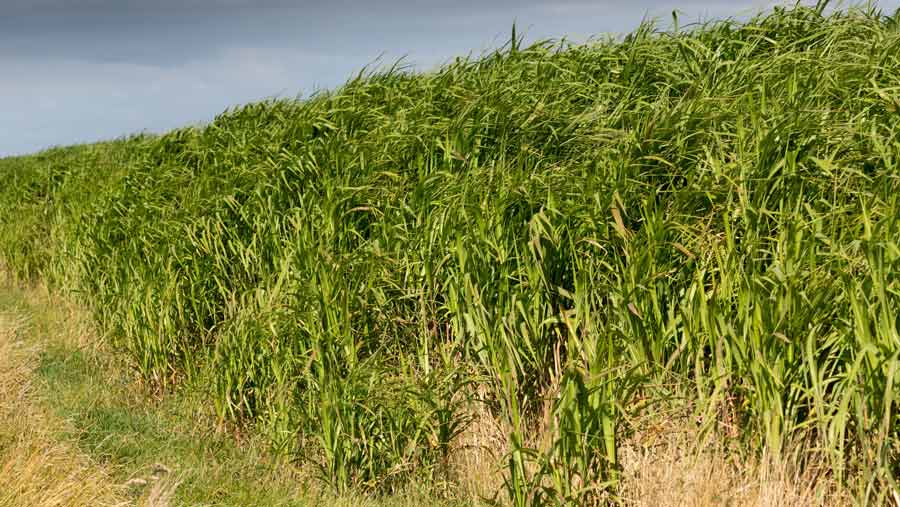Why Norfolk farmer squared off fields with miscanthus
 © Tim Scrivener
© Tim Scrivener A Norfolk arable farmer is using miscanthus to square off poorer performing and awkwardly shaped field edges, in a move to improve field management and machinery efficiency.
Algy Garrod from Manor Farm in Bintree, Norfolk, decided to plant miscanthus three years ago on a 5ha plot of less productive land and is now increasing this area.
See also: Why Lincs grower opted for US-style grain storage system
“My neighbour put miscanthus on some very small fields next to waterways, which got me thinking that I could potentially use it to take out some of my less-productive land,” Mr Garrod explains.
After further yield map analysis, Mr Garrod noted that certain field corners were consistently performing below average each year, prompting him to expand his area of miscanthus further.
The decision was made to plant an additional 10ha of the variety Athena using GPS mapping to straighten fields, taking out areas near hedges and bendy field margins.
Mr Garrod hopes squaring off the fields will make them more manageable and efficient for conventional cropping.
“We’re going after the less-productive fields to improve the soil. It also means that we are not spending money on those fields, which often struggle to deliver a decent return with arable crops,” he says.
“I accept that there may well be some reduction in yield and I’m not suddenly expecting the miscanthus to be an amazing crop when it’s growing right next to a hedge.
“However, I am hoping it will provide me with some efficiency gains – my sprayer works better when it’s going in a straight line as opposed to going round corners, which creates inaccuracies when applying our inputs.”
As the crop is in the establishment phase, it’s too soon to tell if the decision to plant miscanthus has paid off financially.
Miscanthus yield increases year-on-year for the first three to four years before it reaches its full yield potential and can grow without re-planting for up to 20 years.
“We have no idea what the miscanthus will yield yet, as we are only in years two/three, but by year five we will have a better idea,” he adds.

